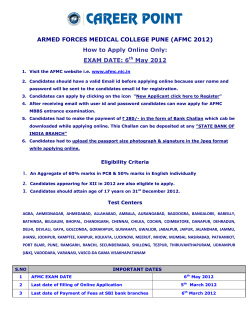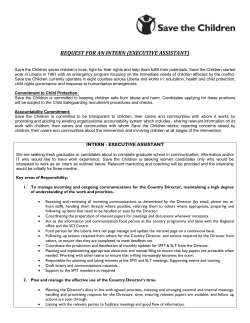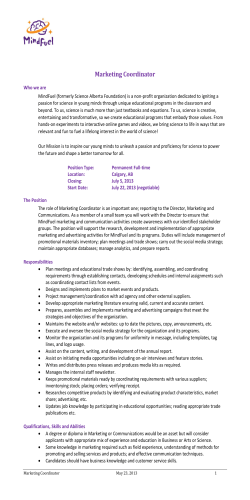
La vie en français. Why learn French? 6. A language for studying at Swiss and French
La vie en français. Why learn French? 6. A language for studying at Swiss and French universities Command of French at DELF B2 or DALF level offers access to universities and colleges in the French-speaking part of Switzerland and in France. 7.A language for the employment market An ability to communicate in French and English greatly enhances prospects in the international employment market. Knowledge of French opens the door to companies in all Frenchspeaking countries. 8.A stylish language to learn 1.A language spoken around the globe French is the second most widely learned foreign language after English, and the ninth most widely spoken language in the world. 2.The language of culture French is the international language of cuisine, fashion, theatre, visual arts, dance, and architecture. Knowledge of French also offers access to the original versions of the great works of French and Frenchspeaking authors, and to French film and music. 3.The language of inter- national relations French is the working and official language of the United Nations, the European Union, UNESCO, NATO, the International Olympic Committee, the International Committee of the Red Cross, and several international courts. French is the spoken language in the four cities – Strasbourg, Brussels, Luxembourg, and Geneva – where many European and international institutions are headquartered. 4.A language that opens up the world After English and German, French is the third most used language on the internet, ahead of Spanish. Understanding French allows a different view of the world through communication with French speakers across all continents, and information received from leading international media available in French. Learning French is, above all, the enjoyable experience of learning a beautiful language with melodic and varying accents. 9.A language for learning other languages Knowledge of French helps when learning other languages, especially Latin languages. 10.The language of love and life French is a beautiful and rich language, and is often referred to as the language of love. But it is also an analytical language that allows structured thinking and develops a critical mind, which is very valuable in discussions and negotiations. 5.A language for travel French, one of Switzerland’s four official languages, is spoken in 56 other countries. France is the most visited country in the world, attracting more than 70 million visitors a year. (Source: French Ministry of Foreign and European Affairs – Directorate for Cultural Cooperation and French Language Promotion, October 2007) Frequently Asked Questions Common European Framework of Reference for Languages. How many levels are there according to the CEFR? There are six levels in the CEFR. DELF has 5 diploma levels (A1.1, A1, A2, B1, and B2), DALF has 2 levels (C1 and C2). Do candidates have to pass levels A1 and A2 before taking level B1? No. Candidates can register for the level of their choice. There is no fixed progression from one level to another. Are candidates allowed to resit an exam? Yes. Candidates may resit an exam as many times as needed until they pass. Is it possible to resit an exam in order to achieve a better result? Yes. However, before resitting the exam, candidates must sign a written release forfeiting their previously awarded diploma. The mark awarded for the second exam will supersede the previous, even if the first mark was better. What is the difference between DELF Tout public, Junior, Prim and Pro? All versions offer the same level of difficulty. However, DELF Prim is designed for primary school pupils, Junior covers a variety of topics that appeal more to a younger age group (up to approximately 20 years of age). DELF Pro contains work related topics and is accessible to all learners like the Tout Public version, the general version for adults. www.delfdalf.ch © DELF DALF Suisse Fondation Esprit Francophonie P.O. Box 1779 8032 Zurich Tel. +41 44 222 22 40 info@delfdalf.ch Do the DELF and DALF diplomas cost the same throughout Switzerland? What is the minimum total of points required in order to pass DELF and DALF? Yes. However, prices in other countries vary from one region to another. A minimum of 50 points is required from a possible 100 points to pass. How many exam sessions are there in Switzerland each year? Is there a mark that automatically leads to failure of the DELF and DALF exams? Four sessions: in March, May, June, and November. Please visit our website www.delfdalf.ch for further information. Can candidates register for an exam at any centre that they wish? Yes. Go to our website www.delfdalf. ch and view the exam schedule in the Enrolment section. Here you can check whether registration for the chosen exam is possible, register online, and find detailed payment information. Select the Our Exam Centres section to find out more about the centres and for contact information. Where can candidates find exam samples to practice? – On our website www.delfdalf.ch, in the Exam examples section. – There is a wide range of DELF preparation material. To find out more, go to the Practical Infor mation section on our website and click Books. Is the use of bilingual dictionaries permitted during the written parts of DELF and DALF? No, bilingual dictionaries are not allowed during DELF and DALF. However, a monolingual dictionary French-French can be used in the oral part of DALF C1 and in all parts of DALF C2.du DALF C2. www.ciep.fr In DELF, a mark below 5/25 in any of the four parts of the exam. In DALF, a mark below 10/50 in any of the four parts of the exam. What happens in cases where a candidate’s text is completely unrelated to the task? The text will be marked based on the candidate’s know-how and linguistic competence. The total number of points achieved will then be divided by two. Blank papers will not be marked (zero points). Is it possible for candidates to review their exams? Only in cases of failure. Are the marks quoted on the diplomas? Yes, on the reverse side. Will the DELF and DALF diplomas expire after a certain period? No. They are an achievement for life and will not need renewal. Which level is required in order to study at a university in a Frenchspeaking country? This depends on the university and can vary from DELF B2 to DALF C1. Please enquire directly at the University in question. offer by DD Info No. 4 / 9.11 What does CEFR stand for? Centre d‘examens Espace Mittelland c/o Wirtschafts- & Kaderschule KV Bern Effingerstrasse 70 CH-3008 Bern
© Copyright 2025













